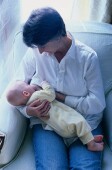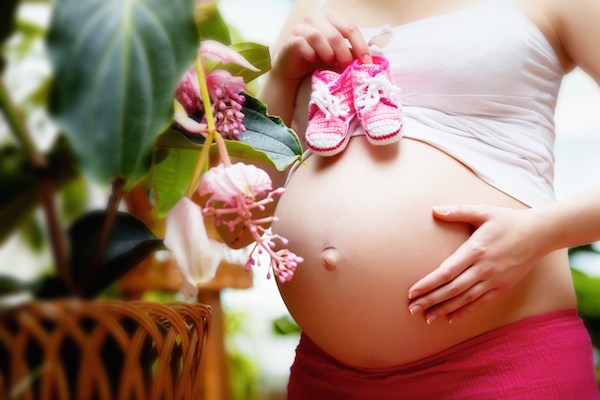
MONDAY, Dec. 21 (HealthDay News) — Although many women choose to breast-feed because of the numerous health benefits it offers their offspring, new research suggests that breast-feeding may also help the health of the mothers’ hearts later in life.
In a study of nearly 300 women, researchers found that those who had not breast-fed were much more likely to have calcification or plaque in their coronary artery, aorta and carotid artery. When calcifications and plaque build up in the arteries, blood flow can be reduced, and, if enough of these deposits build up, they can cause a heart attack or stroke.
“Women who had not breast-fed were more likely to develop changes that might lead to symptomatic heart disease,” said the study’s lead author, Dr. Eleanor Schwarz, an assistant professor of medicine, epidemiology, obstetrics, gynecology and reproductive sciences at the University of Pittsburgh Center for Research on Health Care.
Results of the study will be published in the January issue of Obstetrics and Gynecology.
Schwarz and her colleagues had previously looked at breast-feeding’s effect on older women, and that study found that post-menopausal women who had breast-fed were less likely to report having heart disease. Another study on breast-feeding from a different research group recently reported in the journal Diabetes that women who breast-fed were less likely to develop metabolic syndrome, a clustering of risk factors that indicate an increased risk for heart disease.
The current study included 297 women who’d had at least one baby. At the time of the study, they were 45 to 58 years old, had never been diagnosed with heart disease and had no known symptoms of heart disease.
The researchers used two imaging techniques — electron beam tomography and ultrasound — to assess the health of the women’s blood vessels.
They found that 32 percent of the women who had not breast-fed had coronary artery calcification, compared with 17 percent of the breast-feeding moms. The researchers found calcifications in 39 percent of the aortas of women who hadn’t breast-fed, versus 17 percent of the women who had. They also found plaque deposits in the carotid artery of 18 percent of the women who had not breast-fed and 10 percent of those who had.
After adjusting the data for socioeconomic status, family history and lifestyle factors, heart disease risk factors and body mass, the researchers concluded that women who had not breast-fed were five times more likely to have aortic calcifications than women who consistently breast-fed.
Schwarz said the researchers suspect that the apparent benefit from breast-feeding on later heart health stems from how a woman’s body stores fat and how that fat is released — or not released — after pregnancy.
“A woman’s body expects to go through pregnancy and then lactation,” Schwarz explained. “During pregnancy, a woman’s body stores fat that it expects to release during lactation. If women don’t breast-feed, then the body has to deal with excessive fat.”
The bottom line is that “it’s really important to try to breast-feed,” she said. “If you can breast-feed for three months after each pregnancy, your blood vessels are likely to be in better shape down the road.”
She added that women who can’t breast-feed for three months ought to try for at least a little while. “Some women may feel overwhelmed by some of the long-term breast-feeding recommendations,” Schwarz said. “Our study looked at three months, but if that’s not possible, the longer you can stick with it, the better.”
Dr. Catherine McNeal, an associate professor of medicine and a specialist in cardiovascular disease prevention at Scott & White Healthcare, said she agrees that a decrease in fat mass after pregnancy is probably the factor that’s providing a heart benefit to women who breast-fed.
“We used to think of fat as this inert material, but it’s very bioactive,” McNeal said. “It produces a plethora of bad hormones and inflammatory markers that influence blood pressure, lipids and the risk of diabetes.”
McNeal said that the study provided preliminary data “and we need to look at this area more closely, but I’m excited to see they found a positive effect of breast-feeding.”
More information
The National Women’s Health Information Center has more on the benefits of breast-feeding.

